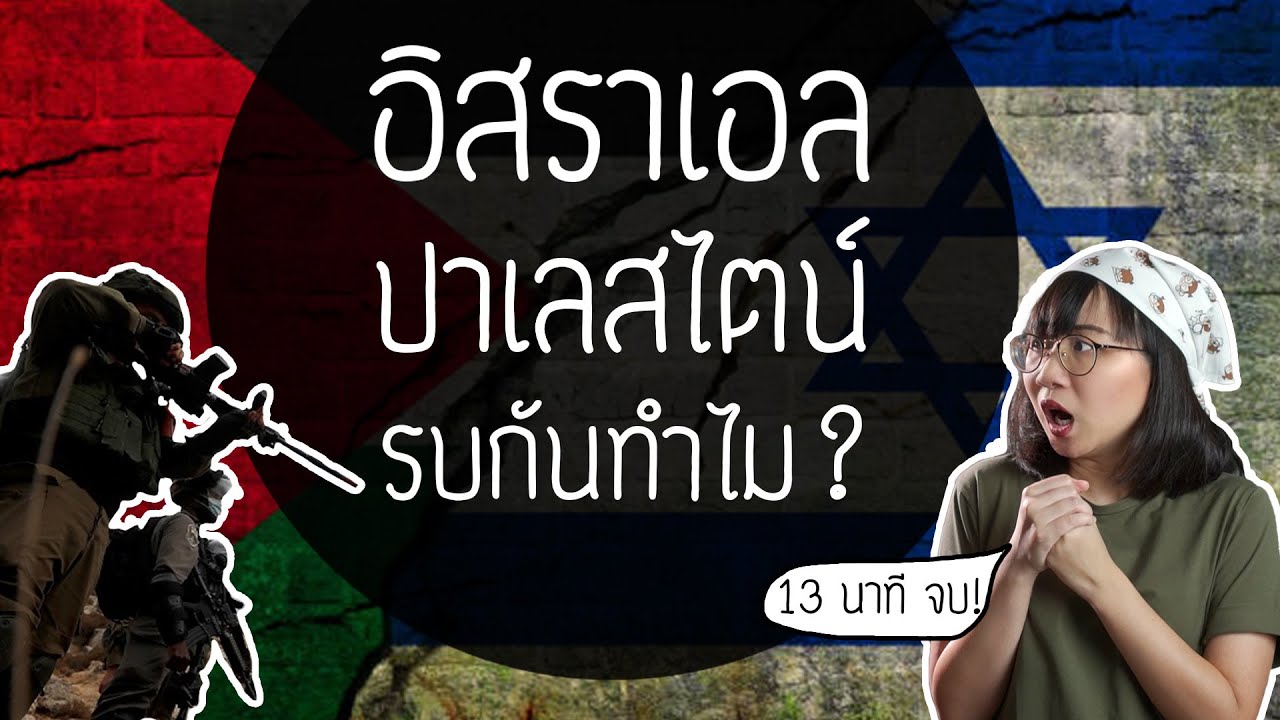How the Israeli-Palestinian Conflict Began | History
Summary
TLDRThe script explores the deep historical roots of the Israel-Palestine conflict, dating back to the time of Abraham. It outlines the establishment of the Israelite monarchy, the Jewish diaspora, and the region's conquest by various powers. The narrative fast forwards to the British mandate, the 1947 UN partition plan, and the subsequent wars, leading to Israel's declaration of statehood in 1948. The summary touches on the displacement of Palestinians, the formation of the PLO, the Oslo Accords, and the ongoing struggle for a two-state solution amidst violence and political complexities.
Takeaways
- 🕌 Israel is the only Jewish nation in the world and was officially established in 1948.
- 📜 The region has a long history of religious and cultural significance, dating back to Abraham and the Old Testament.
- 🏛 The first Jewish temple in Jerusalem was built by Solomon, marking a historical Jewish claim to the land.
- 🏹 The land has been conquered and ruled by various groups, including Romans, Arabs, and Ottomans, who called it Palestine.
- 🌐 The region is sacred to Jews, Muslims, and Christians, leading to a complex religious landscape.
- 🌊 The Jewish diaspora resulted from forced expulsions, creating a dispersed population facing persecution in Europe.
- 🌍 The 1880s saw a Jewish return to Ottoman-controlled Palestine, leading to a significant increase in the Jewish population.
- 🏛️ After World War I, the British Mandate and the League of Nations promised a national home for Jews in Palestine.
- 🏳️🌈 The United Nations' 1947 partition plan led to the establishment of Israel and the beginning of the Arab-Israeli conflict.
- 🛡️ Israel's War of Independence resulted in the displacement of approximately 720,000 Arabs, known as The Catastrophe.
- 🕊️ Despite ongoing conflict, efforts for peace, such as the Oslo Accords, have been made, though challenges remain.
- 🏙️ The conflict is further complicated by Israeli settlements in the West Bank and the struggle for Palestinian statehood.
Q & A
What is the significance of the year 1948 in the context of Israel's history?
-1948 is significant because it marks the year when the state of Israel was officially established, with David Ben-Gurion as its first prime minister.
Why do both Jews and Muslims have strong ties to the region now known as Israel?
-Both Jews and Muslims have strong ties to the region because it is considered sacred and dates back to around 4,000 years to Abraham, who is considered the father of both religions.
What is the historical significance of the Old Testament's reference to Canaan?
-The Old Testament's reference to Canaan is significant because it is where God instructed Abraham and his people to settle, which is approximately the region of modern-day Israel.
Who were the first rulers to establish a monarchy in the region known as Israel?
-The first rulers to establish a monarchy in the region were King Saul, followed by King David and his son Solomon.
What was the significance of Solomon's construction of the first Jewish temple in Jerusalem?
-Solomon's construction of the first Jewish temple in Jerusalem was significant as it became a central place of worship and a symbol of the Jewish claim to the land.
How did the Jewish diaspora affect the Jewish people's relationship with their homeland?
-The Jewish diaspora, caused by various conquests and forced migrations, dispersed the Jewish people from their homeland but also intensified their desire to return and reestablish their presence in the region.
What was the British role in the region after World War I?
-After World War I, Great Britain took control of the region, which included modern-day Israel, Palestine, and Jordan, from the Ottoman Empire.
What was the United Nations' decision regarding the partition of Palestine in 1947?
-In 1947, the United Nations decided to partition Palestine into two states: a Jewish state of Israel and an Arab state of Palestine.
What is the term used to describe the displacement of approximately 720,000 Arabs during the 1948 Arab-Israeli War?
-The displacement of approximately 720,000 Arabs during the 1948 Arab-Israeli War is referred to in Arabic as 'The Catastrophe' or 'Nakba'.
What were the Oslo Accords and their purpose?
-The Oslo Accords were agreements between Israel and the Palestine Liberation Organization (PLO) aimed at creating a timetable for peace and establishing a framework for Palestinian self-governance.
What is the significance of the term 'Intifada' in the context of the Israeli-Palestinian conflict?
-The term 'Intifada' refers to two significant Palestinian uprisings against Israeli control, the First Intifada in 1987 and the Second Intifada in 2000, characterized by violent protests, riots, and attacks.
What is the current status of the Palestinian state and its recognition by Israel?
-The Palestinian state is currently not fully recognized by Israel, especially due to the lack of formal recognition of Israel by groups like Hamas and ongoing disputes over issues such as borders and settlements.
Outlines

Esta sección está disponible solo para usuarios con suscripción. Por favor, mejora tu plan para acceder a esta parte.
Mejorar ahoraMindmap

Esta sección está disponible solo para usuarios con suscripción. Por favor, mejora tu plan para acceder a esta parte.
Mejorar ahoraKeywords

Esta sección está disponible solo para usuarios con suscripción. Por favor, mejora tu plan para acceder a esta parte.
Mejorar ahoraHighlights

Esta sección está disponible solo para usuarios con suscripción. Por favor, mejora tu plan para acceder a esta parte.
Mejorar ahoraTranscripts

Esta sección está disponible solo para usuarios con suscripción. Por favor, mejora tu plan para acceder a esta parte.
Mejorar ahoraVer Más Videos Relacionados

Konflik Palestina-Israel Dimulai Sejak Perang Arab-Israel pada 1948

อิสราเอล-ปาเลสไตน์ รบกันทำไม? | Point of View

ISRAEL x PALESTINA: TUDO O QUE VOCÊ PRECISA SABER SOBRE O CONFLITO

KONFLIK ISRAEL-PALESTINA | Sejarah Peminatan | SMA Negeri 1 Teras

【高校生のための政治・経済】パレスチナ問題#17

El origen del conflicto entre Israel y Palestina explicado En Simple
5.0 / 5 (0 votes)
